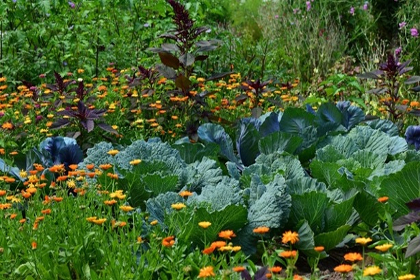Government figures suggest that diagnosable cases of stress, depression or anxiety affected 488,000 British workers in 2015. Last year, doctors wrote 70 million prescriptions for antidepressants and anti-anxiety drugs. Stress related illnesses are not only unpleasant for sufferers it’s a significant risk to British business.
With this in mind I was interested in the observation carried out by Dr Michael Mosely and his team. In Trust Me I’m A Doctor, Dr Mosley took 68 volunteers who felt stressed but had not been diagnosed with a mental health problem. They were split into three groups and each group tested one drug-free stress reduction technique for eight weeks (yoga, mindfulness and gardening). The test groups were compared to a control group who did not engage in any stress reducing activities. At the beginning and end of the experiment, the volunteers filled in psychological questionnaires and gave saliva samples to measure their levels of a hormone called cortisol.

Cortisol is critical to health and survival, but constantly raised levels can cause problems such as fatigue, weakness, depression, anxiety, irritability, loss of emotional control and cognitive difficulties. It activates the brain and gets us prepared for the day. When we wake up we get a huge surge in cortisol, known at the “cortisol awakening response” or CAR. It drops-off during the day. If someone is suffering from stress, there is less of a surge in the morning, leaving the sufferer feeling less able to cope.
The Trust Me team found that mindfulness had the greatest impact on balancing cortisol levels, followed by gardening. Yoga had a relatively modest effect. On average, the volunteers’ CAR increased by 14 per cent, compared to the control group who didn’t do any activity.
What are the most effective ways to reduce stress?
- Exercise is hugely important. The best form of exercise to combat stress is the type that demands total concentration. The focus required breaks the cycle of rumination and negative thoughts. Bouldering and dancing are both cited as good examples of exercise needing full concentration. And if its exercise you enjoy your CAR will rise accordingly.
- Stop eating junk food. It gives extreme highs and lows of blood sugar and some research shows that this can interfere with brain chemicals that affect mood. Make sure your diet includes B vitamins, iron, calcium, magnesium, chromium and zinc. These are all easily obtainable in vegetables. To get the required dose of selenium, eat a handful of Brazil nuts which are rich in it.
- Eat fish oil or its vegetarian equivalent. A study in Norway showed that people who consumed fish oil were 30 per cent less like to suffer depression. If you’re veggie you can get your omega 3 in flax seeds, avocados or walnuts.
- Lack of sleep is a big factor in building stress levels. To promote good sleep, the key things are daily exercise, regular sleep and wake-up times and no screen use an hour before bed.
- Ditch (or at least reduce) social media. People also worry about social media and whether it affects mental health. Recent studies show that passively following other people’s news prompts a range of negative emotions including envy. Psychologists have identified a particular feeling ‘fear of missing out’ or FOMO. In an experiment the Trust Me team found that while sharing news had a positive effect on mood in the short term, the more time users spent on social media, the more ambivalent they felt.
For me one of the most interesting aspects of the observation was the huge increase in benefit when the testers really enjoyed what they were doing. For those people who said they enjoyed their activity, CAR rose by an astonishing 42 per cent. So the moral of the story is if you find something de-stressing you love doing (and you do it) you’ll more than double the usual benefit.
If you need help sorting out HR problems, give us a call on 01908 262628.
Sign up for our free resources and free weekly tip - subscribe here.
For help resolving all your HR queries and problems get in touch!
Phone 0345 644 8955
LinkedIn Russell HR Consulting
DISCLAIMER
Although every effort has been made to ensure the accuracy of the information contained in this blog, nothing herein should be construed as giving advice and no responsibility will be taken for inaccuracies or errors.
Copyright © 2017 all rights reserved. You may copy or distribute this blog as long as this copyright notice and full information about contacting the author are attached. The author is Kate Russell of Russell HR Consulting Ltd.
Latest blog posts
- Is There a Santa Clause?
06 / 12 / 2023
- Lend Us a Hand!
22 / 11 / 2023
- What Happens When There is a Clash in Protected Characteristics?
17 / 10 / 2023
- Encouraging a Healthy Workforce 2
21 / 09 / 2023
- Encouraging a Healthy Workforce
23 / 08 / 2023
- What a Disaster - (But We Have a Cunning Plan!)
20 / 07 / 2023
- It’s Time We Stiffened the Sinews
14 / 06 / 2023
- Why Is It So Important to Develop Emotional Resilience?
16 / 05 / 2023
- When is a discretionary bonus not discretionary?
20 / 04 / 2023
- Recovering Training Costs 15 / 03 / 2023
